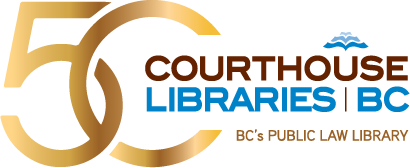About fair dealing
The concept of “fair dealing” supports users’ rights to reproduce copyrighted materials under two conditions:
- it must be for an approved purpose under the Act (e.g. research, private study, education), and
- the context of the reproduction (i.e. the “dealing”) must be “fair”.
What’s “fair” involves an assessment of six factors established by the Supreme Court of Canada in CCH Canadian Ltd. v. Law Society of Upper Canada:
- The purpose of the dealing – Why are you copying the copyrighted material? (e,g,, Is it for an approved purpose?)
- The character of the dealing – How are you using or distributing the copyrighted material? (A student who makes a single copy for personal study, then later recycles it, is a more “fair” use than a professional tutoring company that makes multiple copies for wider distribution in a study booklet.)
- The amount of the dealing – How much are you copying? (A few pages from a book that are relevant to understanding a legal concept is more “fair” than multiple chapters copied “just in case” you could miss something important.)
- Alternatives to the dealing – Could you have achieved your goal without using copyrighted material? (Existence of a non-copyrighted equivalent of the work that you could use instead will make use of a copyrighted work less “fair”.)
- The nature of the work – How publicly available is the work? (an unpublished essay, for example, might be more fair to reproduce than one in a widely published anthology.)
- The effect of the dealing on the work – Is your use likely to undermine the market for the work?
Analysing fair dealing means considering all factors together, not just one or two. No one factor is more important than the others, and they all should be considered in balance.
Fair dealing tips
- See each fairness factor not as a “yes/no”, but a “more fair/less fair” sliding scale. No single factor decides the fairness of your dealing.
- If your use is mainly to illustrate a point and not essential to your work, it might be “less fair”.
- Fair dealing is more likely if the copyrighted material is key to your analysis or review.
- Apply the fair dealing test for each excerpt from a copyrighted work you intend to use.
- Consider using non-copyrighted or open-licensed materials whenever they don’t affect the quality of your work.
- If a specific copyrighted excerpt is necessary for your work and there are no alternatives, your use might be considered “more fair”.
- Trivial changes to material to avoid copyright won’t protect against infringement. It's better to assess fair dealing or seek permission from the copyright holder.
- Try to use diverse sources instead of multiple excerpts from the same work to strengthen your fair dealing case.
For details of authorized copying please consult Courthouse Libraries copyright policy.
